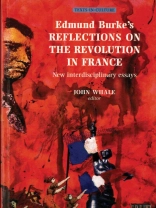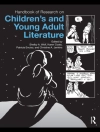First published in 1790 Edmund Burke’s Reflections on the Revolution in France initiated a debate not only about the nature of the unprecedented historical events taking place across the channel, but about the very identity of the British state and its people. It has subsequently been appropriated by a variety of conservative and liberal thinkers and has played a major role in our understanding of the relationship between rhetoric, aesthetics and politics.
In this volume, leading Burke scholars offer new and challenging essays which allow us to reconsider the historical context in which Reflections on the Revolution in France was written. The essays consider its reception, its engagements in the discourses of nationalism and toleration, its legacy to English and Irish writers of the Romantic period and its impact within our contemporary cultural and critical theory. The volume demonstrates a range of interdisciplinary critical methods and cultural perspectives from which to read Burke’s most famous work.
This volume will be the ideal companion to Burke’s Reflections for all students of literature, history, politics and Irish studies.
Tabella dei contenuti
1. Introduction – John Whale
2. Rhetoric and representation in Burke’s Reflections – F. P. Lock
3. The Reflections refracted: the critical reception of Burke’s Reflections on the Revolution in France during the early 1790s – Gregory Claeys
4. Between Burke and the union: reflections on PRO: CO 904/2 – W. J. Mc Cormack
5. Burke, popular opinion, and the problem of a counter-revolutionary public sphere – Kevin Gilmartin
6. Cementing the nation: Burke’s Reflections on nationalism and national identity – Tom Furniss
7. Burke, Toland, toleration: the politics of prejudice, speculation and naturalization – Susan Manly
8. Reflections on the Act of Union – Claire Connolly
9. Reflections and correspondences: the unfamiliarity of Burke’s familiar letter
Notes on contributors
Select bibliography
Index
Circa l’autore
John Whale is Professor of Romantic Literature at the University of Leeds












